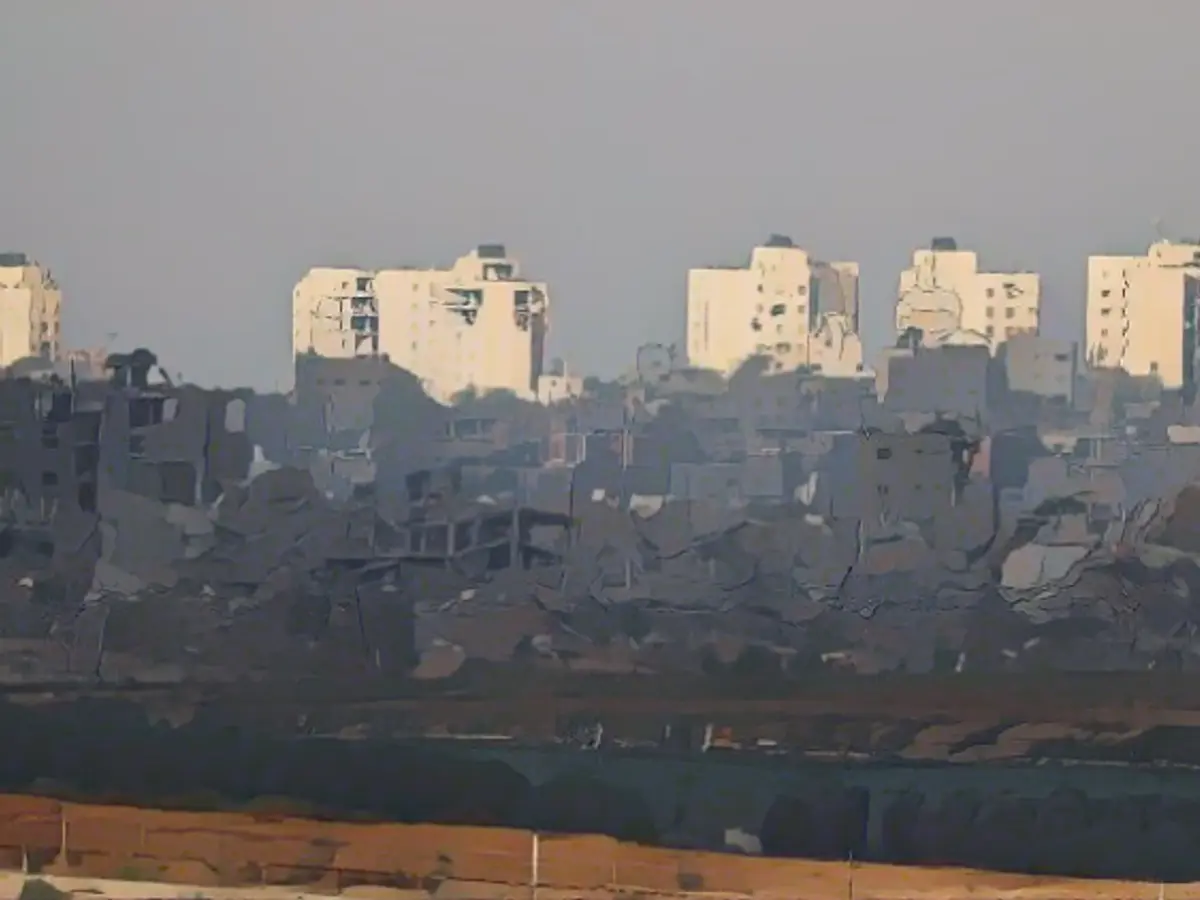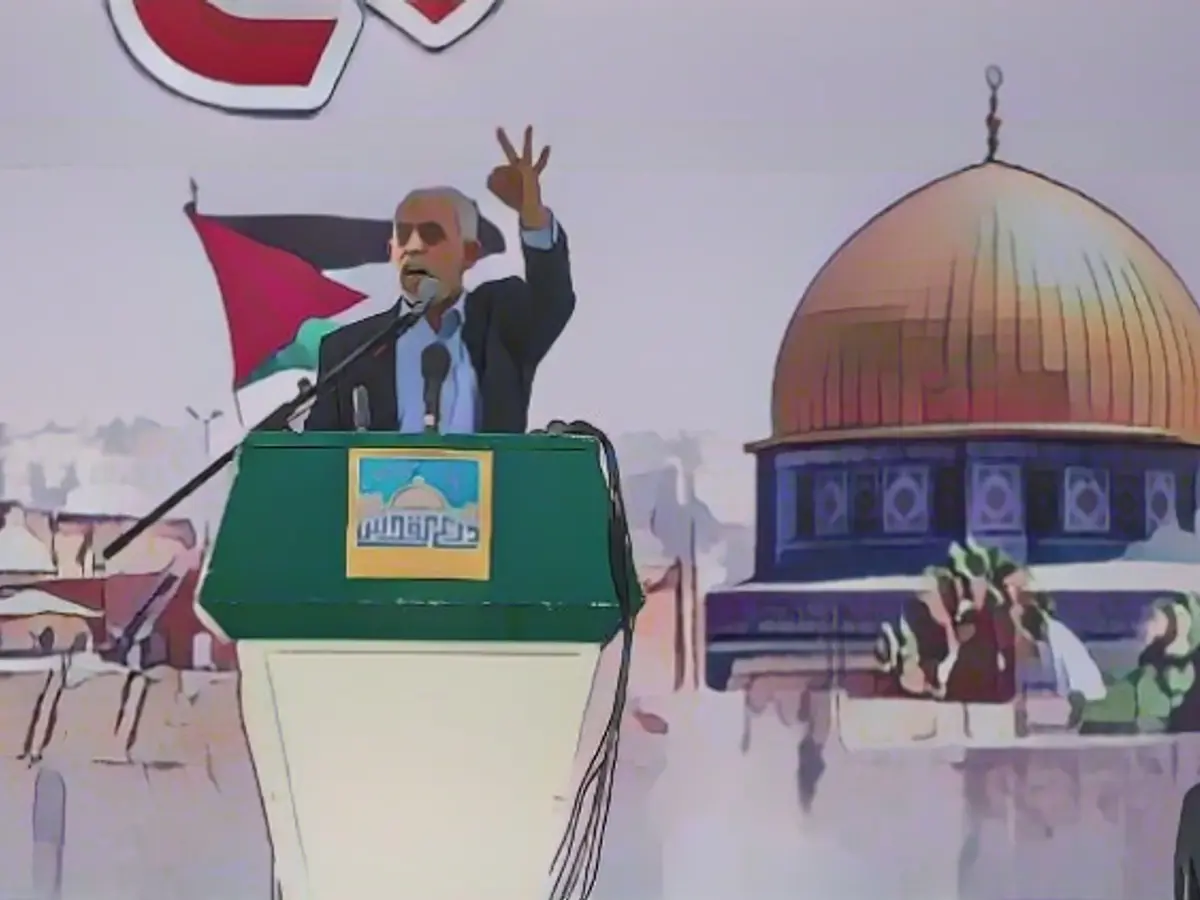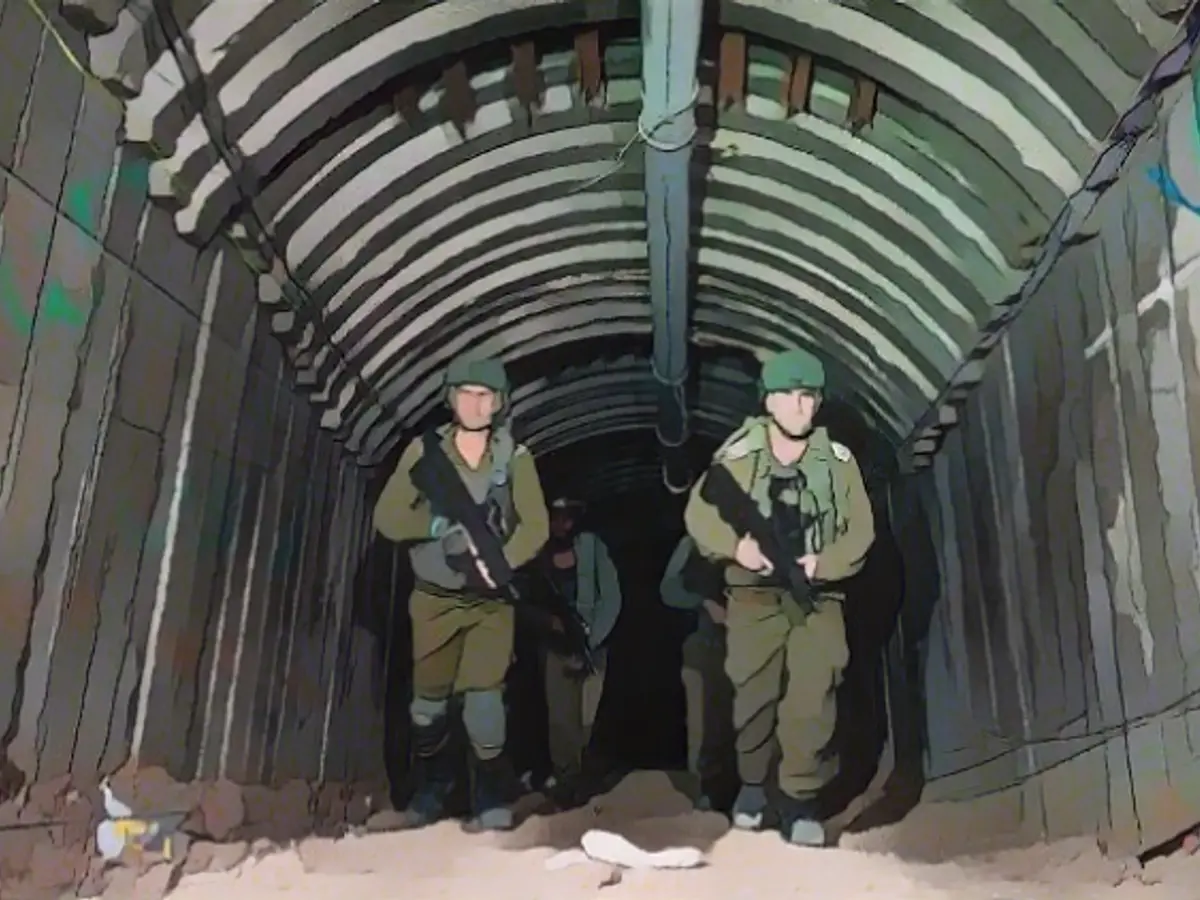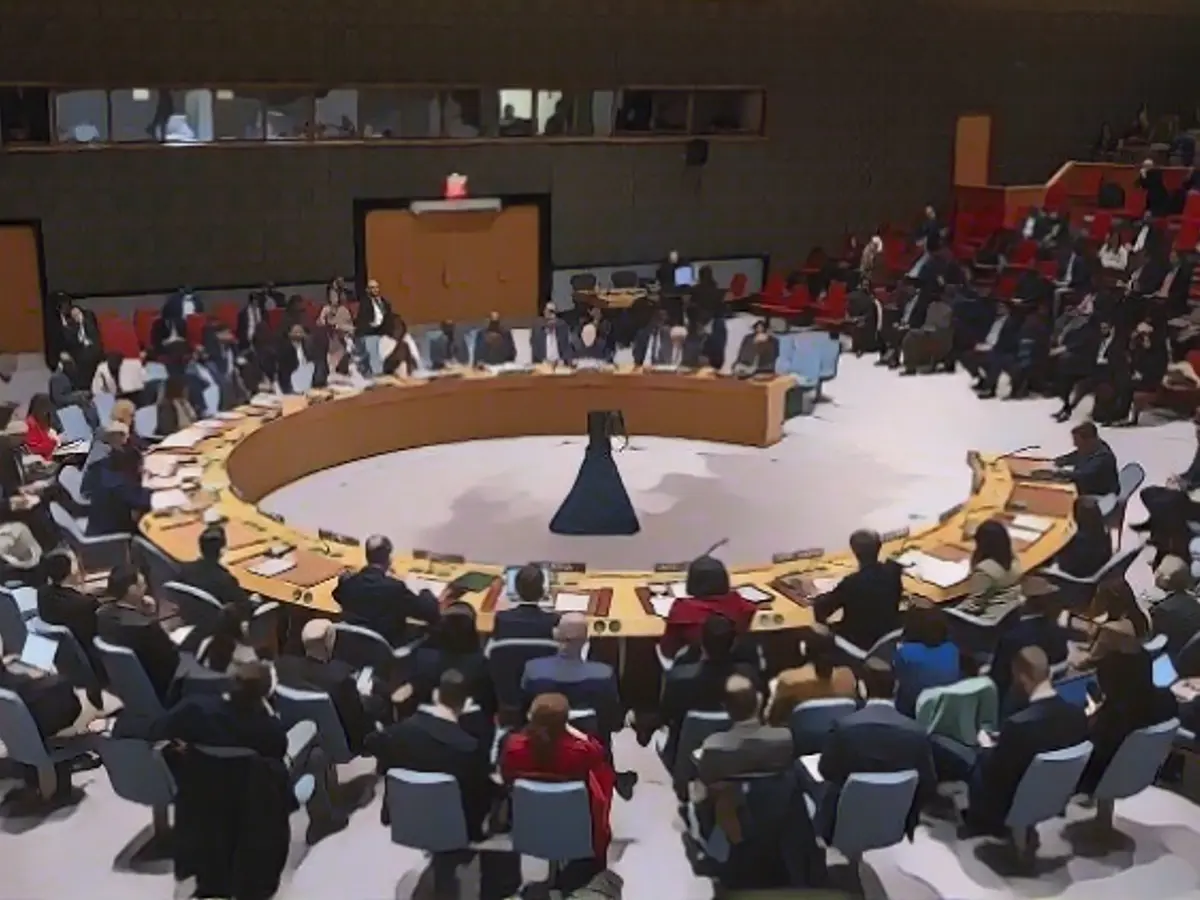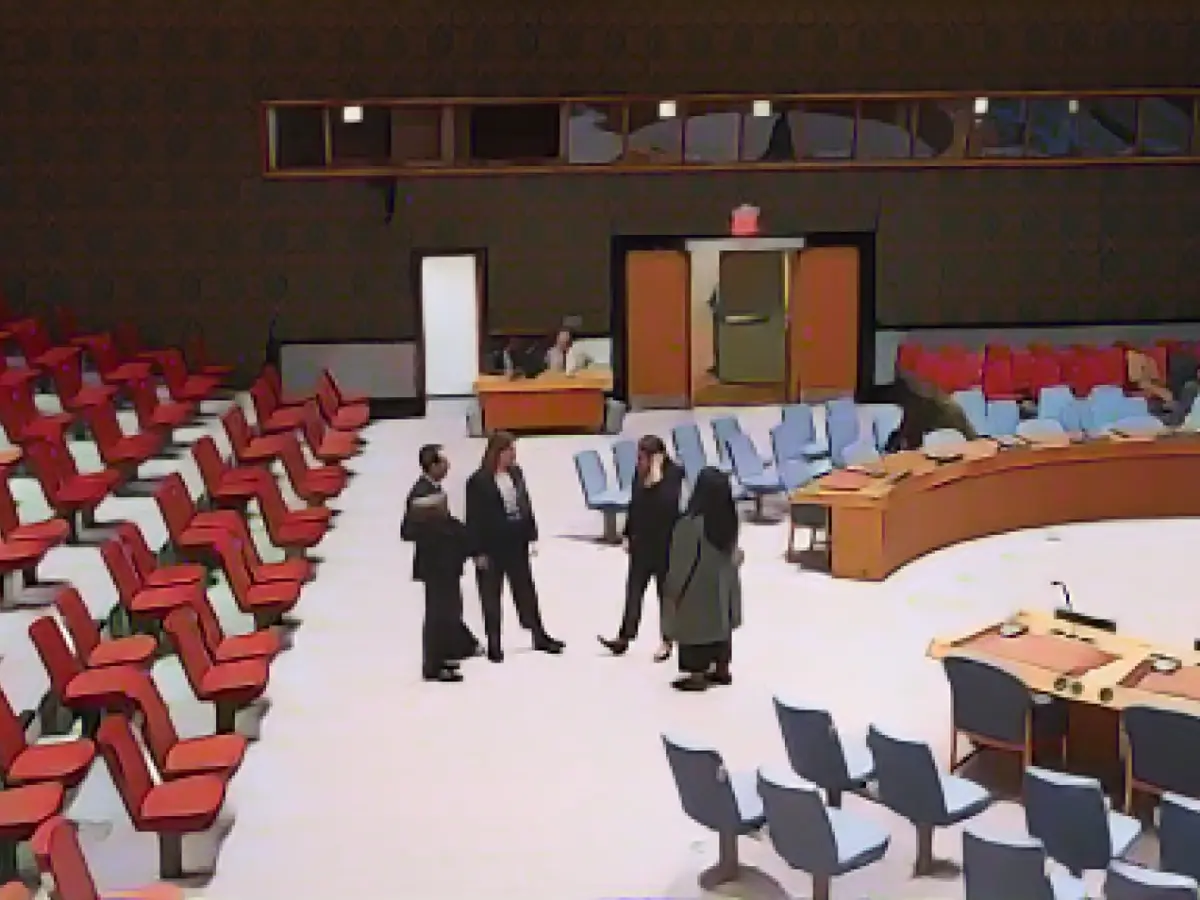Gaza Strip in Shambles, Israeli Minister Suggests Resettlement Overseas
The Israeli military's relentless attacks on the Gaza Strip have left a trail of devastation in their wake. In the aftermath, Israeli Minister of Intelligence, Gila Gamliel, suggests an unconventional solution – funding the "voluntary resettlement" of Palestinians to foreign countries rather than rebuilding the Gaza Strip.
In an article penned for the Jerusalem Post, Gamliel contends that the international community should prioritize funding the resettlement process over providing funds for rebuilding the Gaza Strip or the beleaguered UN Relief and Works Agency for Palestinian Refugees (UNRWA). She asserted that this move would allow Palestinians in Gaza the opportunity to "build a new life in their new host countries."
In the aftermath of the latest round of hostilities, Gamliel proposed that "promoting voluntary resettlement of Palestinians in Gaza outside the strip for humanitarian reasons" would be a feasible option. This approach, she maintains, could prove advantageous for both Palestinians seeking improved living conditions and Israel, which has grappled with the ramifications of the ongoing conflict.
Fears of a "Second Nakba"
The recent escalation in violence in the region, initiated by Hamas militants, has ignited fresh fears among Palestinian leaders. The attack on Israel by Hamas, classified as a terrorist organization by both the United States and the EU, resulted in the death of around 1,200 people in Israel, along with the detention of around 240 others in Gaza.
In response, Israel launched a massive offensive against targets in the Gaza Strip, with ground troops also entering Palestinian territory. Hamas alleges that around 13,000 people have perished in Gaza as a result of the Israeli attacks since they began over six weeks ago, but these figures cannot be independently verified.
The Palestinian President, Mahmoud Abbas, voiced concerns over a potential "second Nakba," referring to the massive displacement of Palestinians that followed the establishment of Israel in 1948.
Israeli-Palestinian conflict escalates
The ongoing Israeli-Palestinian conflict has left the Gaza Strip in ruins, with the latest round of hostilities exacerbating the damage. In the wake of the Israeli military's attacks, Gamliel proposed a controversial solution to the seemingly intractable situation – the "voluntary resettlement" of Palestinians to foreign countries, funded by the international community.
While the proposal has garnered widespread condemnation, President Abbas is not alone in his fears of a repetition of the gruesome events that transpired in 1948. As the dust settles in the aftermath of the latest skirmishes, Gamliel's proposal raises provocative questions about the future of the Israeli-Palestinian conflict, and the role of the international community in its resolution.
Source:
Enrichment Insights:
The international response to Israeli Minister Gila Gamliel's proposal for the voluntary resettlement of Palestinians from Gaza to other countries, instead of rebuilding the Gaza Strip, has been overwhelmingly negative and critical. Here are the key points from the sources:
- Rejection by Arab States and Palestinian Authority: The proposal was met with rejection by foreign ministers and officials from Egypt, Jordan, Saudi Arabia, Qatar, the United Arab Emirates, the Palestinian Authority, and the Arab League. They argued that it would undermine regional stability and the prospects for peace[2].
- Chinese Opposition: China has strongly criticized the idea, with officials and media calling it a war crime and a violation of international humanitarian law. The prospect of Israel seizing control of the Gaza port also raises concerns for China’s national security[3].
- United Nations High Commissioner for Refugees: The UN High Commissioner for Refugees, Filippo Grandi, rejected the proposal, arguing that forcible displacement should not be advocated, encouraged, or imposed. He emphasized that such actions would be prohibited under the Geneva Conventions[3].
- International Criticism: The proposal has drawn criticism for its potential to ethnically cleanse Palestinians from Gaza, a move that critics see as reminiscent of the Palestinian Nakba of 1948. The international community has emphasized that such actions would be unacceptable and a violation of Palestinians' rights[2][3].
In a nutshell, the international community has roundly condemned Gamliel's proposal, which many perceive as an attempt at ethnic cleansing and a violation of humanitarian law.
